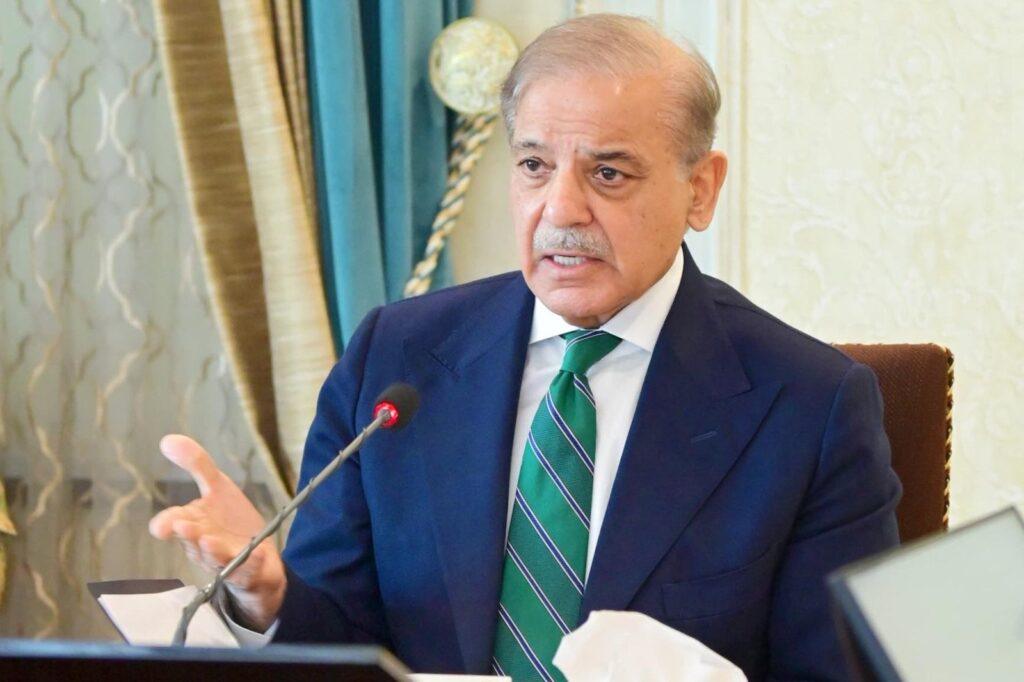Islamabad:
Prime Minister Shehbaz Sharif has put together a high -level political committee to oversee the implementation of the National Financial Pact. The committee will also work to build consensus on the sharing of debt burden between the federation and the provinces and coordinate the development of critical water infrastructure in the midst of Indian aggression.
Deputy Prime Minister Ishaq Dar of Pakistan Muslim League-Nawaz (PML-N) and Pakistan Peoples Party (PPP) President Bilawal Bhutto Zardari will be co-chair of the Eight Member Committee, according to instructions issued by the Prime Minister’s office.
According to the decision made after a meeting between PML-N and PPP in Lahore on Sunday, the other members include ministers for defense; planning; finance; Financial affairs and legislation as well as the lawyer of Pakistan (AGP).
In particular, the government has not included any representative of the opposition Pakistan Tehreek-E-Insaf (PTI), which controls Khyber-Pakhtunkhwa (KP). Without PTI’s involvement, achieving consensus on the national fiscal covenant and meeting the fiscal goals that agree with the International Monetary Fund (IMF), prove difficult.
The fiscal covenant was signed by the finance ministers of the federal and provincial governments in September 2024 as an IMF condition. But the implementation remains slow, as provinces, especially Sindh, have concern about taking some expenses for expenses.
The fiscal covenant is aimed at rebuing consumer responsibility and better adjust the provincial and federal taxation policies. Provinces agreed on the stating of specific expenses from the federal governments in accordance with the 18th constitutional amendment, but the implementation could not begin.
“From the financial year 2026, all new PSDP [Public Sector Development Programme] Projects that affect only one province are expected to be financed directly from provincial budgets, “reads the new IMF staff report published on Saturday.
“The Prime Minister has been pleased to constitute the following committee at a high level to oversee, coordinate and ensure effective implementation of the national financial pact,” the instructions issued by the Prime Minister’s office said.
The finance department will notify the committee and act as its secretariat in accordance with the decision. The committee will share the proposals that require treatment in the federal and provincial budgets within 10 days.
One of the most important reference conditions for the committee is to build consensus and way forward about issues and challenges of national importance, including debt burden, critical infrastructure development and water safety.
Debt Service Prices are expected to be RS8.7 trillion or half of the new financial year’s budget. There has been thinking within the federal government to pass on some of these costs to the provinces. According to the Constitution, however, the provinces are not obliged to share this responsibility.
Pakistan also has to build new water storage facilities in war feeding to deal with India’s illegal act of blocking Pakistani share of water under the World Bank guaranteed Indus Basin Treaty (IWT).
According to the Prime Minister’s office, the committee will provide strategic supervision and direction to ensure effective and timely implementation of all obligations under the national financial pact of both federal and provincial governments.
The Committee will monitor the implementation of revenue measures, including adaptation of agricultural income tax with FBR’s income tax regime, transition of services GST to a negative list, the development of a common framework for property taxation and efforts to improve the total tax compliance and administration.
Although the provincial governments have passed the respective agricultural tax laws, their implementation remains challenging. Due to this fact, the IMF has imposed a new condition under the parcel of $ 7 billion to develop a delivery mechanism.
“Implement the new AIT LOVE through a comprehensive plan, including the establishment of an operational platform for the treatment of returns, taxpayer identification and registration, a communication campaign and an improvement in compliance improvements,” reads the second out of 11 new conditions.
The Prime Minister’s office stated that the committee at a high level will oversee the implementation of consumer reforms, including increased provincial contributions to higher education and social protection, Benazir Income Support Program (BISP), adjusting the PSDP responsibilities and phasing in provincial support price regimes.
The committee will also track progress with management measures such as roll-out of the electronic Pakistan acquisition and disposal system (e-pads), adoption of brands of green budget, digitalisation of government payments and items and coordination of anti-money-whaling and combating terrorist financing together with relevant agencies.
The IMF report stated that Pakistan Public Procurement Regulatory Authority (PPRA) is expanding e-pads to federal agencies and provincial governments. From late February 2025, a total of 623 purchasing agencies, which belong to 51 federal ministries and departments, are already integrated into the system.
In accordance with the national financial coves, two provinces continue to increase their use of e-pads; With another province that is already piloting their use in 2025 and the fourth province that underwent their current system for integration with e-pads, the IMF said.
So far, out of the 32,359 planned purchasing contracts worth RS821.1 billion at the federal level in the e-pillows, 21,339 contracts costing RS74.5 billion are completed.
The high -level committee will also serve as the platform to solve implementation challenges and facilitate consensus between the federal and provincial governments and relevant stakeholders, according to the decision.
The IMF report stated that it “recommended that the authorities develop a framework to guide provincial investments of their accumulated cash surplus in state securities through non-competitive bids”.



